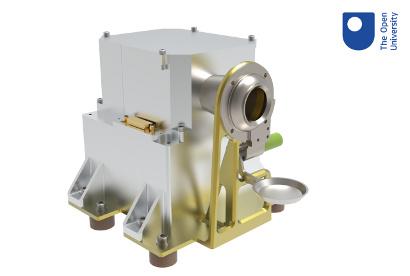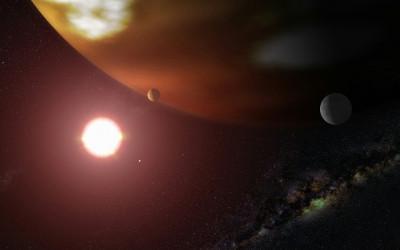OU research has been selected to support NASA’s return to the Moon

As the 50th Anniversary of the Apollo 11 Moon landing approaches, OU researchers announce that they are part of a team selected to support NASA’s return to the Moon.
Monitoring the atmosphere close to the Moon
NASA is preparing to return to the Moon with a series of ground-breaking missions. Three companies have been contracted to build landers to deliver scientific and technology demonstration payloads to the Moon, under the ‘Artemis’ program.
The OU team, led by Dr Simeon Barber, is collaborating with Dr Barbara Cohen of NASA Goddard Spaceflight Center who is leading the project to provide an instrument to monitor the very thin atmosphere near the surface of the Moon.
The instrument called PROSPECT Ion Trap Mass Spectrometer (PITMS) will conduct both scientific and engineering investigations and will also prove its durability in the harsh lunar environment. PITMS is scheduled to land in Lacus Mortis, a large crater on the near side of the Moon, by July 2021 where it will operate for several days.
“The atmosphere – or more correctly ‘surface-bounded exosphere’ – will be perturbed by the landing event, as the descent motors expel exhaust gases and stir up dust from the surface. Studying the extent of the perturbance, and the relaxation of the exosphere to its natural state, will enable researchers to understand the interaction between the spacecraft and the Moon,” said Dr Barber.
Searching for a ‘water cycle’
The instrument will also search for evidence of a natural ‘water cycle’ on the Moon. There is increasing evidence from orbiting probes that water may migrate from equatorial regions, driven by extreme day-night temperature cycles, until it becomes tightly ‘trapped’ at permanently cold polar locations. Understanding the source and movement of this water is a key open question in lunar science. Such knowledge would also pave the way for developing plans to harvest lunar water as a resource to support future human exploration mission and the establishment of lunar bases.
The instrument selected by NASA is a variant of the OU's 'ProSPA' instrument already in development for the European Space Agency and scheduled to fly to the Moon on a Russian lander in 2025.
Additional information
Contact our news team
For all out of hours enquiries, please telephone +44 (0)7901 515891
Contact detailsNews & articles

OU researchers lead international advances in planetary protection
Open University researchers are leading international advances in planetary protection, helping ensure that space exploration is safe, sustainable, and scientifically rigorous.